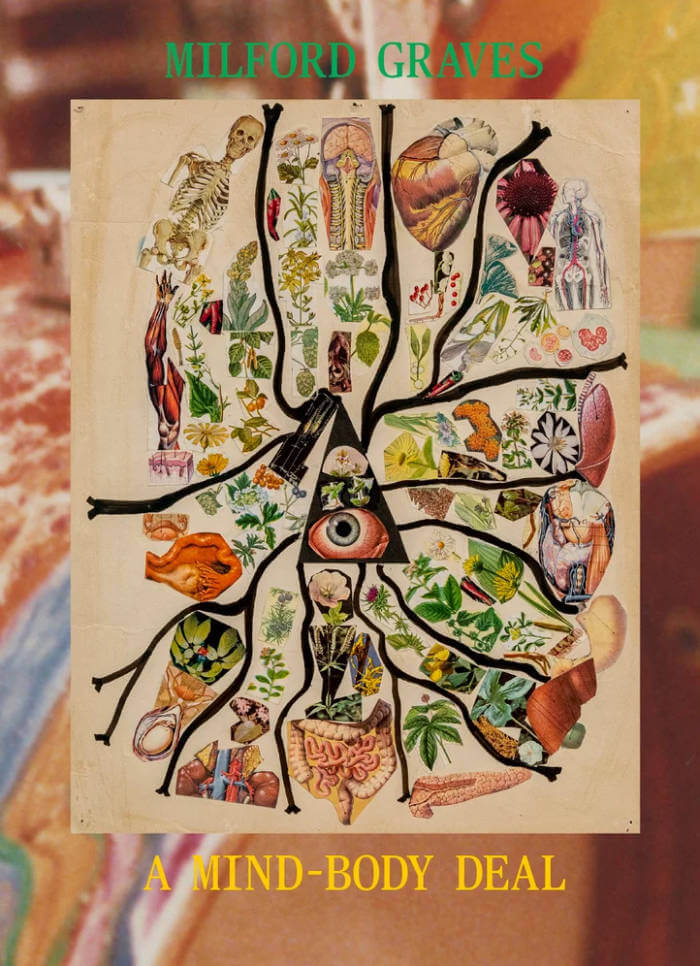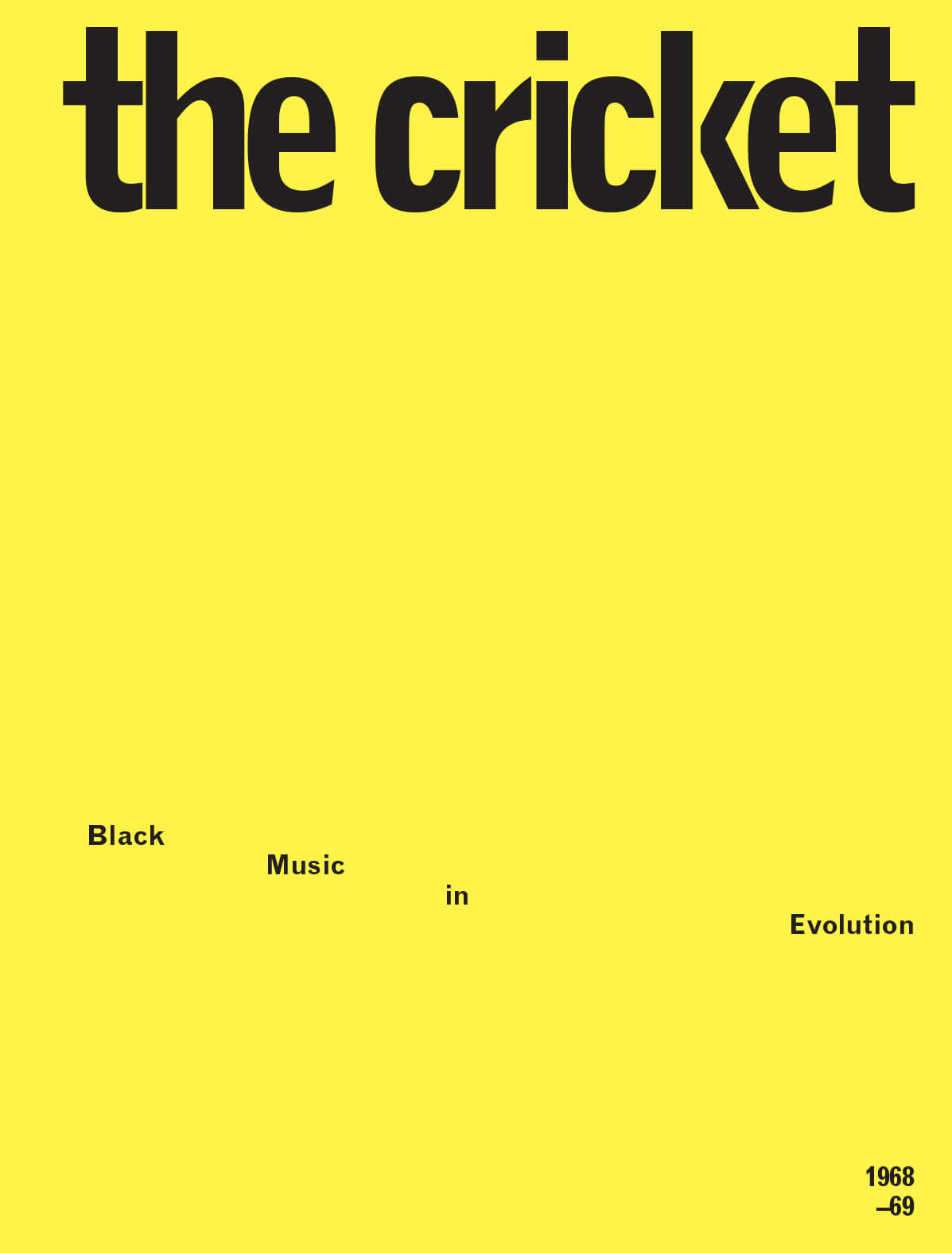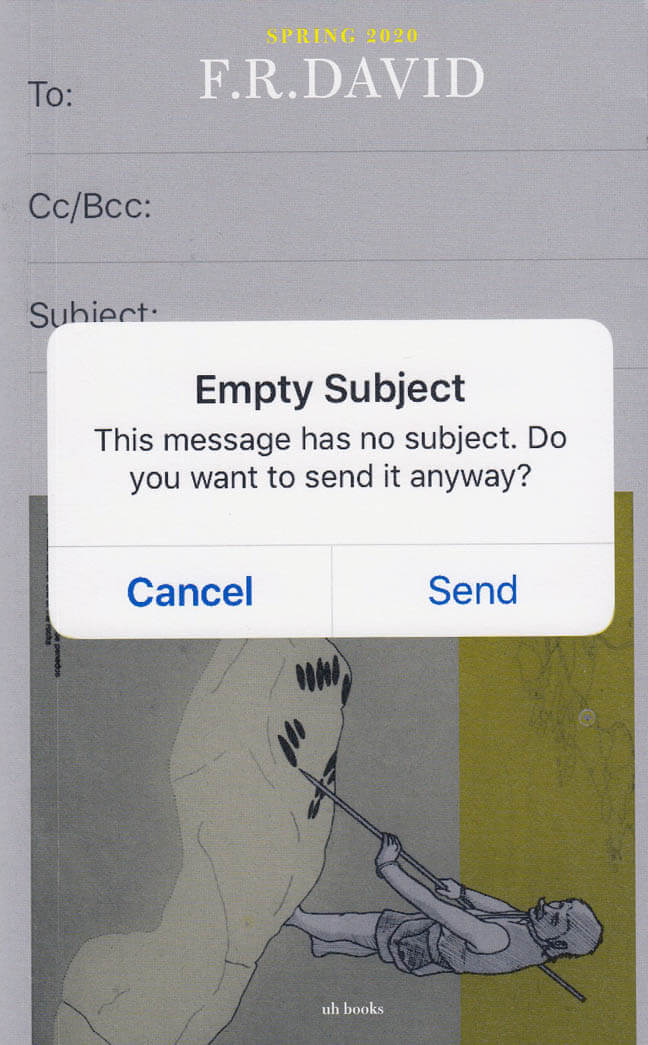Milford Graves
Milford Graves

Milford Graves: A Mind-Body Deal
The first-ever overview on the multimedia art of free-jazz pioneer and creative polymath Milford Graves
Milford Graves (born 1941) has been a revelatory force in music since the mid-1960s, liberating the drummer from the role of "timekeeper" to instrumental improviser and giving rise to the free-jazz movement, with groundbreaking performances alongside Lou Reed, Min Tanaka and John Zorn.
But music cannot contain the energies of his creativity and intellect. Graves' kaleidoscopic genius led him to develop an unprecedented body of interests—from medicine to botany, stem-cell regeneration to martial arts.
A Mind-Body Deal gathers the multifaceted work of Milford Graves, exploring the practices and predilections of this extraordinary mind. Fully illustrated, this catalog includes documentation from the eponymous show at ICA Philadelphia, exhibiting a collection of Graves' hand-painted album covers and posters, idiosyncratic drum sets, recording ephemera, multimedia sculptures, photographs and costumes, with elements from his scientific studies.
And more

Drum Listens to Heart
Accompanying the 2022 exhibition at Wattis Institute for Contemporary Arts in San Francisco, Drum Listens to Heart reflects on the many ways that percussion exists beyond the framework of music and imagines "the percussive" as an aesthetic, expressive and political form more broadly. The publication includes a new essay by the curator, images of the works in the exhibition by the 25 artists and artist collectives, and short texts by 10 scholars, writers, artists and curators who respond to a single word to create a "glossary" of terms associated with percussion.
Artists include: Francis Alÿs, Luke Anguhadluq, Marcos Ávila Forero, Raven Chacon, Em'kal Eyongakpa, Theaster Gates, Milford Graves, David Hammons, Consuelo Tupper Hernández, Susan Howe & David Grubbs, NIC Kay, Barry Le Va, Rose Lowder, Lee Lozano, Guadalupe Maravilla, Harold Mendez, Rie Nakajima, the Otolith Group, Lucy Raven, Davina Semo, Michael E. Smith, Haegue Yang and David Zink Yi. Live performances by Elysia Crampton Chuquimia, Moor Mother, Nkisi, Nomon, Karen Stackpole, Marshall Trammell and William Winant.

The Cricket – Black Music in Evolution, 1968-69
Larry Neal, A. B. Spellman and 1 more
Complete facsimile of The Cricket, an important but underknown music magazine edited by poets and writers Amiri Baraka, A. B. Spellman, and Larry Neal in 1968–69—a rare document of the Black Arts Movement.
Published in the late 1960s by Baraka's New Jersey-based JIHAD productions around the time of the Newark Riots, The Cricket: Black Evolution in Music was an experimental music magazine running poetry, short plays, and gossip alongside concert and record reviews and essays on music and politics. Over four mimeographed issues, The Cricket laid out an anti-commercial ideology and took aim at the conservative jazz press, providing a space for critics, poets, and journalists (including Stanley Crouch, Haki Madhubuti, Ishmael Reed, Sonia Sanchez, and Keorapetse Kgositsile) and musicians (including Cecil Taylor, Milford Graves, Sun Ra, Mtume, Albert Ayler, the Black Unity Trio) to devise new styles of music writing. The publication emerged from the heart of a political movement—"a proto-ideology, akin to but younger than the Garveyite movement and the separatism of Elijah Mohammed," as Spellman write's in the books preface—and aimed to reunite advanced art with its community, "to provide Black Music with a powerful historical and critical tool," and to enable avant-garde Black musicians and writers "to finally make a way for themselves."
This publication gathers all issues of the magazine and a new substantial introduction by artist and writer Kodwo Eshun.
Preface by A. B. Spellman.
Introduction by David Grundy.
Texts by Billy Abernathy, Albert Ayler, LeRoi Jones / Imamu Ameer Baraka, Duncan Barber, Black Unity Trio, Hilary Broadus, Ben Caldwell, Stanley Crouch, Dan Dawson, Joe Goncalves, Milford Graves, Ronnie Gross, Clyde Halisi, E. Hill, Haasan Oqwiendha Fum al Hut, Norman Jordan, Larry A. Miller / Mwanafunzi Katibu, Willie Kgositsile, Don L. Lee, Mtume, Gaston Neal, Larry Neal, Ibn Pori, Sun Ra, Ishmael Reed, Roger Riggins, Sonia Sanchez, A. B. Spellman, James T. Stewart, Donald Stone, Askia Muhammad Touré.

Blank Forms #07 – The Cowboy's Dreams of Home
The seventh entry in an ongoing series of anthologies, this book features rare poems alongside new essays and interviews that engage the artists and themes explored elsewhere in Blank Forms' public programming.
Where most of prior entries, including Aspirations of Madness (2020), Intelligent Life (2019), and Music From The World Tomorrow (2018), have foregrounded little-seen or newly translated archival materials, this iteration privileges new texts produced specifically for the publication. These include an in-depth retrospective interview with the idiosyncratic Texan singer-songwriter and visual artist Terry Allen conducted by ICA Philadelphia chief curator Anthony Elms; a conversation between multidisciplinary writers—and longtime friends—Thulani Davis and Jessica Hagedorn on the occasion of Davis's latest poetry collection, Nothing but the Music, recently published by Blank Forms Editions; a recent discussion between composer Sarah Hennies and cellist Judith Hamann about their recent collaboration, which is included on Hamann's Music for Cello and Humming; and a conversation with composer-performers Tashi Wada and Charles Curtis, on the heels of a recent compilation of Curtis's work, Performances & Recordings 1998– 2018, produced by Wada. Each of these interviews shed light on the particularities of the artists' careers and methods in terms both formal and casual, practical and theoretical.
In addition to these dialogues, this book features new critical reflections on three artists whose work Blank Forms has presented: the legendary jazz percussionist and healer Milford Graves, by Ciarán Finlayson; English multimedia artist Graham Lambkin and his beguiling 2011 album Amateur Doubles, by Alan Licht; and the UK-based experimental music trio Still House Plants, by Joe Bucciero. These articles mine historical, social, and theoretical contexts, filling gaps in the existing literature on the given artist-subjects. New and archival poems and writing about poetry complement these interviews and essays, including rare texts by Davis, Hagedorn, and René Daumal—the latter translated by Louise Landes Levi—and a suite of Auto-Mythological writings commissioned from Chicago-based composer and musician Angel Bat Dawid.

F.R. David - Very Good
F.R.DAVID is a typographical journal, dealing with the organisation of reading and writing in contemporary art practises. The 19th issue, “very good*” is edited with Paul Abbott. Like music, the issue’s “theme” is better off unaccounted for, and up in the air, like a flock of birds (creatures who feature heavily), circling around performance, listening bodies, given time, and loving relations.
The nineteenth issue of ‘F.R.DAVID’ is edited by Will Holder and Paula Abbott, and will serve as a reader for “We can still see the horizon (and it’s curved)”, a summer residency in Scotland led by the editors. It includes a surprising array of contributions from writer Jorge Luis Borges, journalist and writer Italo Calvino, composer Hugo Cole, literary critic and theorist Barbara Herrnstein Smith, percussionist Milford Graves, philosopher Michel Serres, novelist and essayist Wilson Harris, poet Bernadette Mayer, composer and music theorist Harry Partch, pianist and poet Cecil Taylor, and several others.